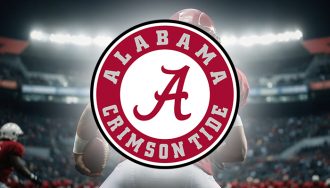 Betting Bill Fails to Get Past Alabama Conference CommitteeRead Article
Betting Bill Fails to Get Past Alabama Conference CommitteeRead Article Lisa SpencerMay 18, 2024
Lisa SpencerMay 18, 2024
Indiana Gaming Commission’s executive director Sara Tait said the start date of mobile and retail sports betting has been placed in the hands of the casinos. She also added that although it is too early to tell which that date would be, the timing of the launch will be dictated by how fast the operators give the information necessary for a review and launch approval.
IGC held a sports wagering stakeholder meeting last Thursday where launch proposals were discussed, and operators were asked to point out dates on which they plan to go into IN sports betting.
The Indiana governor signed the law authorizing sports betting in May, thus allowing for wagering to start as early as September 1. This was crucial because the NFL season begins September 5.
While Indiana is eager to start retail sports betting, mobile wagering is still left in the background. Tait even said the Indiana Gaming Commission has not yet received a single request to launch online sports betting. She also stated the IGC has not placed any restrictions on the start of mobile wagering. However, it should be noted that operators have a lot to do to demonstrate that geolocation and internal controls requirements are met. Even so, a good prediction for mobile betting in Indiana is mid-October.
What we have heard from other jurisdictions is retail is a little bit easier to launch and it can fold into existing casino operations.
said Sara Gonso Tait, Indiana Gaming Commission’s executive director. She added:
We’re pleased our operators so far have really focused on retail so that we can hopefully get those activities going as close to September 1 as possible. We know Hoosiers are very excited to have access to mobile wagering, but we’re going to launch it responsibly.
Sports betting in Indiana is permitted on a wide range. Recently, the Indiana Gaming Commission put out a list of ninety sporting events that will be allowed for sports wagering. They include auto racing, basketball, bowling, baseball, boxing, darts, cricket, football, and golf. Every casino operator can determine which of the permitted events it will accept wagers. Sportsbooks can also submit a request to the commission if they wish to accept wagers on events not included in the list.
At the commission meeting, a directive that was issued last week was reviewed, addressing the restrictions to the proposition bets and wagers operators can offer. Except when specifically restricted, Sportsbooks can offer wagers for the events and approved leagues where the results can be confirmed by statistical results and are determined on the field of play.
Still, there are more decisions to be made in Indiana. At the meeting, stakeholders had the final opportunity to offer questions on the emergency rules of the draft and their own feedback. The rules are set to be finalized at a Gaming Commission’s meeting that is staged for August 28.
During the next weeks, the commission will review the stakeholders’ submissions for suggested changes. Tait anticipates that some changes would be made to the rules. Thirteen off-track betting properties and casinos got temporary sports wagering licenses by the Indiana Gaming Commission this July.
Before accepting their first wager, operators need to take a few steps, including getting approval for internal controls and certification from the Indiana Testing Lab. Also, operators must pass an inspection of their server storage and data center and set up voluntary-exclusion and self-restriction programs. There are also geolocation requirements that need to be met. Once this process is complete, operators can get ready for sports betting.
 Betting Bill Fails to Get Past Alabama Conference CommitteeRead Article
Betting Bill Fails to Get Past Alabama Conference CommitteeRead Article Lisa SpencerMay 18, 2024
Lisa SpencerMay 18, 2024 North Carolina Lawmaker Introduces Bill to Ban College Prop BetsRead Article
North Carolina Lawmaker Introduces Bill to Ban College Prop BetsRead Article Lisa SpencerMay 15, 2024
Lisa SpencerMay 15, 2024 November Referendum on Sports Betting Likely in MissouriRead Article
November Referendum on Sports Betting Likely in MissouriRead Article Lisa SpencerMay 13, 2024
Lisa SpencerMay 13, 2024